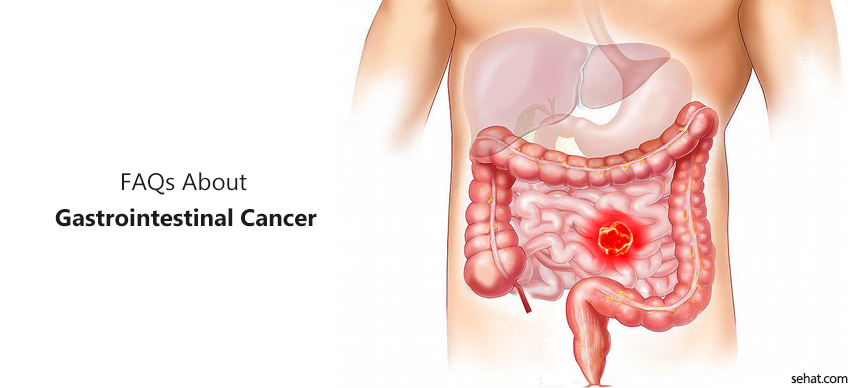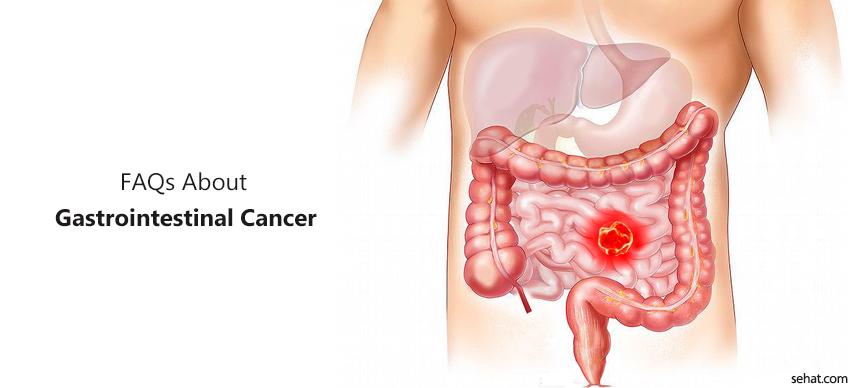What Comprehensive Oral Care Really Looks Like in Modern Den..
11 Min Read


Misconceptions related to GI cancer can keep you from getting immediate medical attention. Solve all your doubts and queries regarding gastrointestinal cancer here.
Gastrointestinal cancers include cancers arising from the digestive system:
When combined together as a group, Gastrointestinal (GI) cancer is one of the most common cancers occurring in the body. Also, GI cancers are one of the most common causes of cancer-related death. As per Globocan data of 2012, out of estimated 1.01 million new cases of cancer in the year 2012 in India, 227,000 were located in GI tract. Similarly, out of about 682,000 cancer-related deaths, approximately 182,000 deaths were because of GI cancers. Hence, it is very important to spread awareness in general public about gastrointestinal cancers.
Signs & symptoms of GI cancer are very subtle and nonspecific. So, most patients either neglect them or end up getting treated as simple problems like gas or acidity by general practitioners.
Generally, GI cancers are detected very late in course of the disease when curative treatment becomes not possible.
Following are the Warning Signs:
Whenever patients have such problems, they should consult an expert Gastrointestinal Cancer surgeon. The presence of the above signs & symptoms does not necessarily mean that the patient has cancer only. Let your expert doctor examine you and decide.
Whenever a patient has above-mentioned symptoms, then they should consult an expert Gastrointestinal Cancer surgeon.
After your doctor examines you, he may run a few tests if required to check whether the patient has cancer or not.
Following are the different set of tests which may be required.
Following are different treatment modalities for GI Cancer
GI cancer surgery plays a very important role in treatment. It is the only curative treatment modality available.
With available advanced knowledge & technical skill in GI cancer surgery, Chemotherapy and Radiotherapy, almost all GI cancer are curable. Unfortunately, in our country, due to lack of awareness most cancers (50-80%) are detected late in course of the disease when a complete cure is difficult.
The key is “Early Detection and Treatmentâ€. The most important thing is to create awareness about warning signs of GI cancer among the general population. So, whenever a patient has a suspicion of above-mentioned problems, they can consult expert Doctor and cancer can be detected early and treated effectively.
GI cancer surgery is very different from any other cancer surgery like breast cancer, oral cancers, kidney cancer, etc. because in GI Cancer surgery, once cancer is removed, reconstruction of the gastrointestinal tract is very important for normal life functions. However, when surgery is done by a specialized GI cancer surgeon, the results are excellent and safe.
Nowadays, most GI cancer surgery is performed with Laparoscopy (Keyhole surgery), where there are no big cuts. So, patients have very minimal pain and recovery is quick. Patients can start walking 4-6 hours after surgery and most patients are allowed oral diet on the same day or the next day. Most patients are discharged around 4-5 days after surgery depending upon the type of surgery performed.
Well, not always. However, there are few risk factors associated with GI cancer – Smoking, Tobacco, Alcohol, consumption of red meat, family history of cancer, obesity, diet lacking fruits & vegetables (antioxidants), chronic bacterial or viral infections and chronic illness.
By adopting a healthy diet & lifestyle, spreading awareness and avoiding addictions, many GI cancers can be prevented.